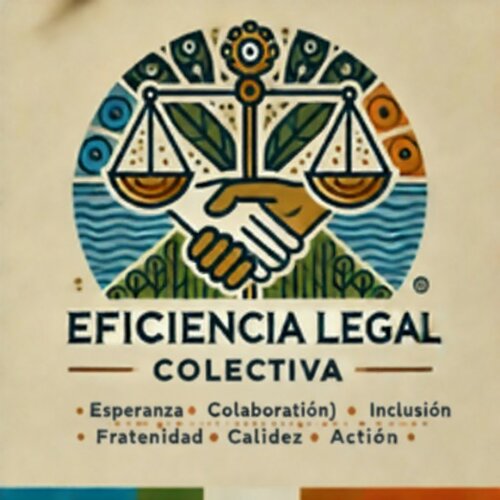Best Child Custody Lawyers in Guadalajara
Share your needs with us, get contacted by law firms.
Free. Takes 2 min.
Free Guide to Hiring a Family Lawyer
List of the best lawyers in Guadalajara, Mexico
About Child Custody Law in Guadalajara, Mexico
Child custody in Guadalajara, Mexico, is governed by the Mexican Family Law. The legal framework is designed to prioritize the welfare and best interests of the child. Child custody cases often arise during divorce proceedings or the separation of unmarried couples. In these cases, the Mexican courts will evaluate various factors to determine an arrangement that ensures the child's stability, safety, and emotional well-being. Decisions can include either sole or joint custody, with a focus on maintaining a meaningful relationship with both parents where possible. Legal supervision in Guadalajara includes the Jalisco Family Courts, which ensure that decisions are fair and in accordance with the law.
Why You May Need a Lawyer
Legal representation in child custody matters is often crucial for several reasons. If you are entering a custody battle, an experienced lawyer can provide guidance on the complexities of the legal process, representation in court, and advocacy for your rights and those of your child. Lawyers are essential in situations involving relocation, disputes over parenting plans, cases with allegations of domestic abuse, or when negotiating visitation rights and child support. Additionally, having legal expertise can be invaluable when dealing with international child custody disputes, which can be further complicated by different jurisdictions.
Local Laws Overview
In Guadalajara, as part of the broader Mexican Family Law framework, custody laws are based on the principle of the best interest of the child. This includes evaluating the child's emotional and physical well-being, the capability of each parent to provide for the child, and the child's own wishes, depending on their age and maturity. Joint custody is generally favored unless it is not in the child's best interest. The local legal system also considers factors like domestic violence, substance abuse, and the parents’ ability to cooperate in raising the child. Non-custodial parents are often granted visitation rights, and both parents are usually expected to contribute financially to the child's upbringing.
Frequently Asked Questions
What is the difference between physical and legal custody?
Physical custody refers to the living arrangements of the child, meaning with whom the child resides. Legal custody involves the right to make significant decisions about the child's life, including education, healthcare, and religious upbringing.
How do courts determine the best interest of the child?
Courts consider various factors like the emotional bonds between the child and each parent, the parents' ability to provide for the child's needs, the child's home, school, and community environment, as well as any history of family violence or substance abuse.
Can a custody agreement be modified?
Yes, custody agreements can be modified if there is a significant change in circumstances that affects the child’s welfare. Either parent can petition the court for a modification.
Is mediation required in child custody cases?
Mediation is often encouraged to resolve disputes amicably without going to court. However, it is not strictly required unless ordered by the court in some cases.
What happens if the other parent violates the custody agreement?
Violations of a custody agreement can lead to legal consequences, including contempt of court, fines, or modifications to the custody arrangement. Document any violations and consult with a lawyer.
Can grandparents seek custody or visitation rights?
Under certain circumstances, grandparents may petition for custody or visitation rights, especially if it is in the best interest of the child or if one or both parents are deemed unfit.
What if one parent wants to move to another state or country with the child?
Relocation can significantly impact custody arrangements and usually requires court approval, taking into consideration the best interests of the child and the reasons for the move.
How does domestic violence affect custody decisions?
If domestic violence is proven, it can influence the court's decision, often limiting or denying custody to the offending parent to protect the child’s welfare.
Are child custody orders from another country recognized in Mexico?
Mexico may recognize foreign custody orders, especially if the foreign order aligns with international treaties like The Hague Convention on the Civil Aspects of International Child Abduction.
How long does it typically take to resolve a child custody case?
The timeline can vary based on the complexity of the case, the willingness of parties to negotiate, and the court’s schedule, ranging from a few months to over a year.
Additional Resources
For further information and support, individuals can contact the Jalisco Family Courts, the Mexican National System for Integral Family Development (DIF), or local legal aid clinics that provide assistance with family law matters. Legal advice can also be sought from professional organizations such as the Mexican Bar Association.
Next Steps
If you find yourself in need of legal assistance with child custody in Guadalajara, it is advisable to consult with a qualified family law attorney who can offer personalized guidance. Begin by gathering relevant documents such as any existing custody agreements, records of communication with the other parent, and documentation of the child's needs and routines. Schedule a consultation to discuss your case and explore your legal options. Reputable legal professionals will be able to guide you through the process, advocate for you in court, and help you reach the most favorable outcome for your child's welfare.
Lawzana helps you find the best lawyers and law firms in Guadalajara through a curated and pre-screened list of qualified legal professionals. Our platform offers rankings and detailed profiles of attorneys and law firms, allowing you to compare based on practice areas, including Child Custody, experience, and client feedback.
Each profile includes a description of the firm's areas of practice, client reviews, team members and partners, year of establishment, spoken languages, office locations, contact information, social media presence, and any published articles or resources. Most firms on our platform speak English and are experienced in both local and international legal matters.
Get a quote from top-rated law firms in Guadalajara, Mexico — quickly, securely, and without unnecessary hassle.
Disclaimer:
The information provided on this page is for general informational purposes only and does not constitute legal advice. While we strive to ensure the accuracy and relevance of the content, legal information may change over time, and interpretations of the law can vary. You should always consult with a qualified legal professional for advice specific to your situation.
We disclaim all liability for actions taken or not taken based on the content of this page. If you believe any information is incorrect or outdated, please contact us, and we will review and update it where appropriate.

















